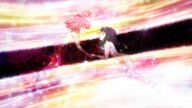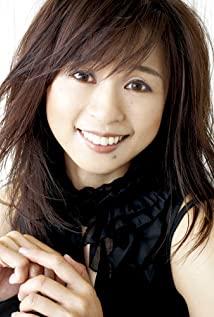Although I haven't been an otaku for a long time, just over a year, I have watched a lot of anime. Animations or entertainment works such as TV series have two aesthetic purposes: to reflect reality or to construct the world so that the audience can escape from reality. Most of the works so far, at least the ones I've seen, are dominated by the construction of the world to allow the audience to escape from reality. The so-called worldview setting is the construction of this passive nihilism's self-created world. The popularity of hot-blooded anime, even if it takes Harry Potter as an example, its attraction to audiences or readers is mostly focused on empathy, that is, the recipient of the artwork imagines itself as some of the characters in it. , in order to obtain a kind of pleasure that cannot be experienced in the real world. For example, to achieve "justice", gain everyone's approval, and establish so-called "fetters", it is more about gaining an ability or potential to change at least, that is, non-generality. And most of the character settings of the bloody anime are mostly a protagonist who has no talent at all. What he finally became through the so-called bloody efforts, what purpose was achieved, who was saved, etc., which fit the audience's mediocrity and expectations. A different feeling. This kind of ecstasy, in most anime, I have some more or less. Even in works with negative elements such as EVA, although Shinji has completed all mankind with the negative thoughts of others being hell (L'enfer, c'est les Autres), and his own character is also passive and escapist, However, he really changed the world and took revenge on the reality in a way of destroying others (although he finally realized that hurting and hurting others is a social necessity of human beings), and the opportunity for such revenge is rare in reality Yes, so I still have a sense of identity and yearning for the role of Shinji. However, regarding the magical girl Madoka, I have absolutely no idea to become any of them, even Madoka, I absolutely do not want to become it, not because of their inevitable fate of magical girls, or after becoming a rule The fact that there is no destiny that cannot exist and cannot disappear is due to the powerlessness that they cannot completely deconstruct the rules of reality even after they have obtained extraordinary power.
The nature of Deconstructionism of Magical Girl Madoka was proposed a long time ago. Its principles and perspectives are nothing more than the deconstruction of the general magical girl's setting in this work, and the final deconstruction of the magical girl's rules by Yuanshen. Re-refactoring (here, a small rant, how similar the principle of the ring is to the Kabbalah tree of life... Probably a symbol of destroying the rules of the old world and reconstructing it, but the symbol structure is still the same, no Destroy it all, new house.)
The development process of deconstructionism is from Existentialism to Structuralism, and finally appears with anti-structuralism. Existentialism emphasizes the value of individual existence, while structuralism emphasizes the importance of structure over individual existence itself. Deconstructionism, on the other hand, doubts the existence of a supreme rule and value that constitutes a structure. This work is a very successful deconstruction of the magical girl in the traditional sense, using the method of peeling the onion layer by layer (combat cruelty - headless senior, magical girl inhumanity - soul stripping, magical girl The final destination—beautiful trees become witches, the value of magical girls—the second theorem of inverse thermodynamics) to reveal the truth of magical girls in this worldview, and to do with the invincible and costless mindset of magical girls in the traditional sense. Out of deconstruction, here deconstruction is a method of artistic creation, and deconstructionism is most reflected in the behavior of garden gods to change the rules. However, as you can see, because the wish is to destroy the witch before the witch is born, That is, forcibly depriving "hope" into "despair" and creating a gap to do work, but with the disappearance of the witch, low-density desperate "monster monsters" appeared again. The inevitable appearance of this despair is precisely the manifestation of Yuanshen's inability to deconstruct the unconventional and cruelty of magical girls. The magical girl is still unable to escape the battle, despairing and disappearing. This kind of balance of the energy consumed by the wishes of magical girls is bound to appear. This is a necessity for the balance of reality, and it is also the despair of magical girls who are still unable to completely rewrite reality when they acquire unrealistic abilities. This mandatory balancing method proves that this work is not a complete deconstructionist work. Although the absolute and objective Other is not present, Yuanshen has also transformed into the existence of new rules, but the basic rules of this world balance are Unbreakable. On the contrary, the existence of a witch, whose purpose is to destroy, has a negative concept of this world. The nature of the witch of relief (Kriemhild Gretchen) is to absorb all human beings into what she believes to be the kingdom of heaven, denying reality in a certain sense. After deconstructing the rules, since the witch's enchantment is controlled by the witch, if the enchantment continues to expand (see Suzumiya's closed space), it can become a new world that completely deconstructs the rules of the old world.
So I think this work just uses deconstructionism as a technique, but what it wants to express is definitely not a deconstructionist worldview. Rather, this work puts more emphasis on the meaning and importance of personal existence. The dialogue between Q and Madoka in Chapter 9 reflects the difference between Q and Madoka on the value of life, that is, Madoka attaches importance to the existence and happiness of each individual, while Q is focusing on the stability and development of the overall structure of the universe , which is the conflict between existentialism and structuralism. Of course, it is obvious that both the creator and the audience are biased towards Madoka. After all, we are both human beings, and there is no completely objective logic circuit of Q Bei's. In my opinion, several magical girls are symbols of human existence, and their hopes and despairs are our hopes and despairs.
Ba Mami: Senpai is the first bento and the most resentful character. She appears in the animation as a kind of senior and teacher, no matter in the first few weeks. The reason she became a magical girl was her desire to live (did she call an ambulance?), and to fulfill her duty as a magical girl for the happiness of others. Yet no matter how strong and powerful the character may seem, the loneliness of human nature is conveyed through the character of Mami. I believe everyone remembers the confession of death Flag in Chapter 3. Although Senior Sister is a powerful being, the loneliness in the heart of the strong is also huge. She hopes to have a comrade-in-arms who can fight side by side with her. For the topic of loneliness, I won't expand it here, and EVA will dissect it more thoroughly.
Miki Sayaka: The most idealized character in the entire animation, she is the paranoid of human beings for an absolute justice and absolute perfect moral existence, and is willing to devote herself to it, but in the process of achieving absolute justice, there is a curse, although Her attack was similar to Jesus' crucifixion, and she was powerless to choose to forgive those who hurt her in the face of blow and pain. Her yearning for sanctity and the suppression of the ultimate reality are also symbols of human beings' conflict with reality and compromise when pursuing ideals. When understanding this character, you can refer to Madame Bovary.
Sakura Kyoko: Compared with Sayaka, she is a representative of realism, admitting the law of the jungle, and fully aware of the nothingness of idealized justice, and instead fights only for survival. However, she still has a trace of idealism and romanticism, and finally chose to die with the mermaid witch. I look at this character completely relative to Sayaka. The two people's principles of life are completely opposite, but Sayaka's "I'm so stupid" and Kyoko's "have already lived like this, so let me have a happy dream." Well..." It shows the fit of the two people's minds after the reality wash.
The three characters mentioned above, for the other two characters, have the meaning of supporting roles, and their deaths deconstructed the mentality of the magical girl. This deconstruction is for Madoka, after all, Homura has known it for a long time. . The above three characters can be called the other in reality. Needless to say, the remaining two magical girls are the central characters and will be the focus of my analysis.
Xiaomeiyan: I must say, she is a warrior. I even think that it can be compared with the passing guest in Lu Xun's "Passenger". How many reincarnations she has gone through, we don't know, the hurts, despairs of each reincarnation, and the things that will inevitably happen in each reincarnation, the things that cannot be stopped, she re-experiences them over and over again. The struggles she made in each reincarnation were repeated attempts in situations where she knew her fate, and even her known meaninglessness. The most painful punishment a human being can experience is Sisyphus, being forced to do meaningless things in an infinite loop. However, the meaninglessness of Homura's infinite reincarnation is based on its own will. Just as the walking of a passer-by is based on the call of a voice ahead, even though there is a grave ahead, death or nothingness, passers-by must go on, in order to transcend death and transcend a kind of spiritual value awareness of nothingness; the walking of flames, It's the repetition of walking in a still time period, knowing everything ahead, everyone's death, but she wants to seize even the smallest chance to transcend this meaningless opportunity. Her oath of reincarnation "Reincarnation... No matter how many times, I still choose reincarnation, searching countless times, looking for the only way out. Looking for the way that can save you from your despairing fate... To experience the meaning of protecting this world in battle, to experience Madoka's love, it can be said that she resists nothingness, and the process of finding irrational meaning in existence not only does not end, but also becomes greater with the loss of value. Compared with the passer-by, I respect Homura's resistance to nothingness more, not because she is rippling, black and straight, but because her resistance is to realize the value she has determined rather than the passerby's resistance to nothingness in order to find value. Flame's reincarnation expresses a sense of the absurdity of human existence, the infinite return and reincarnation of nothingness, absurdity and meaninglessness, which is the argument of nihilism. Homura symbolizes all lost human beings, searching for their own meaning in life and never reaching their goals. Despite this, she still chooses to move forward, which is a portrayal of rebelling against nothingness and against despair.
Kagome Yuan: Some people say that Madoka is a born saint, and I agree with her, but it is slightly inappropriate to say that she is born. As the character of the devil, and according to my point of view of Homura, rebelling against fate is also what this work wants to express. In this way, I believe that Madoka is not a born sage, nor a god determined by fate, but a god chosen by the will to save. As a protagonist, her setting deconstructs the unconventionality of general anime protagonists, and we even see Madoka's mother teaching her how to do things. It can be said that she is an ordinary student. Her strength is that she has no strength. Her character is a kind, mediocre character that can no longer be mediocre, and her first wish to become a magical girl is to save a kitten from mediocrity to the extreme. Moreover, in the reincarnation of the first 9 episodes, she has always appeared as an observer, and her existence has hardly changed anyone's fate. The reason why she is the protagonist is due to the concentration of cause and effect on the one hand, and the sacredness of her character level - fraternity on the other hand. If Senpai made a wish based on her own life, Sayaka made a wish based on her love, Kyoko made a wish based on her affection for her father, and Homura made a wish based on her friendship with Madoka, then Madoka is the only one who is truly selfless. To fulfill this wish for "others" without asking for anything. In the various reincarnations before Homura returned to Madoka to become a magical girl, Madoka signed a contract after knowing the truth about the magical girl, and the starting point was always to save others, and for herself, it didn't matter what happened. , as long as it can change the fate of others. This can be seen even when Madoka has not become a magical girl. The problems that Madoka and her mother ask for advice are mostly the reactions that her friends should have when they are in trouble. It is some life skills that her mother taught her. Madoka is very similar to Jesus in my mind. Fraternity and sacrifice have also become new values and rules. What makes Madoka more detached than Sayaka is that he does not hold an absolute justice. Fearless of loneliness, Bi Xingzi's detachment lies in not succumbing to reality, Biyan's detachment lies in the breadth of love, she does not fight for hope, but saves by turning her own love into hope, Jesus was crucified In fact, he could choose to save himself during the cross, but he chose to be crucified. The reason is that Jesus did not need to absolutely uphold the justice of God. Tolerate and bear the original sin of mankind with love, to save those who are in sin and oppressed by reality Humans, just like Madoka, do not wish for her own existence or Homura's value, but embrace and endure the despair of magical girls with a love that transcends personalities. However, the tragedy of her is also very obvious. Even if she overcomes all her own despair and creates new rules at the expense, she still needs to abide by the principle of balance. Sayaka can't stop her, and there is no way for a human being to become a magical girl. Back again. This is the failure of the deconstructionists, and it is also the sadness that the ideal cannot completely destroy the original value even though it can be changed under the obstacles of the practical rules. At least, Madoka realized the detachment of the meaning of existence here, realized the non-universal value of being in an intermediate state between existence and nothingness, and got rid of the unknowable destiny of human beings towards nothingness. The absence and ubiquity of the intermediate state have not been able to realize their full value, pain and despair still exist, and the value and purpose in the extreme sense, even the existence beyond existence, cannot be realized and changed. So in fact, this animation is to admit the existence of an absolute rule.
In fact, the setting of this work has another advantage that witches come from magical girls, which not only deconstructs the definition of traditional magical girls, but also deconstructs the binary opposition of good and evil. Here magical girls are injustice, And witches are not absolutely evil, only that magical girls are in line with universal values, and their existence is considered a positive existence. However, despair and hope are still binary in the setting. I have no objection to this. After all, despair and hope are indeed binary in the values and psychology of most people. But for my personal understanding, despair and hope are not two ends of a scale that must be opposed and balanced. As Petofi said, "despair is false, it is the same as hope", the nihility of despair and hope Are the same. The two people who break through the boundaries of despair and hope in the animation are Madoka and Homura. Both of them have the will to save and intend to break through the rules of nothingness and reality.
Okay, let’s stop writing, in fact, there are still many things I want to say, extreme, indescribable in language, the experience of self-dissection of the soul, but after writing it, I feel very refreshing, after all, this work is pressing in my heart, and I don’t feel unhappy. . This is just my own personal understanding. I don’t mean to deny everyone’s understanding. I want to exchange different understandings of the works so that I can improve my understanding.
Addendum:
Some understanding of the setting
About Q Bei: Note that although Q Bei can realize the wish of the magical girl, she cannot control the wish of the magical girl, nor can she control the magical girl, and can be changed by the wish of the magical girl (circle After God's wish was fulfilled, Q Bei didn't know that there was a witch's energy collection method before), and the race to which Q Bei belonged was worried about the psychology of the heat death of the universe. The wish of a magical girl is not something that can be fulfilled by any wish. Madoka also acquired the god-like ability to fulfill her wish after being reincarnated many times. When Q Bei popularized physical knowledge to Madoka, he mentioned that "this energy source is the magic of magical girls", and "discovered" that human emotional power can distort the theorem of thermodynamics. When Q Bei discovered the reason for Madoka's strength, he also mentioned that the criterion for a magical girl's strength lies in the assembly of her causal lines, that is, the stronger the cause and effect that will be affected by becoming a magical girl, the greater her power will be. The above-mentioned reasons can fully prove that the race of Q Bei is not the maker of truth and rules, nor is it an absolutely objective existence of the Big Other.
About the contract: The contract with Q Bei is just an act of extracting the soul to make an entity, so that the emotional energy can be transformed into physical energy, and it is not a sacred contract. What urges magical girls to fulfill the absolute truth of the contract against witches is not the contract itself, but the rigid demand of magical girls for the Grief Seed.
About Soul Gem and Grief Seed: Needless to say, the spiritual core is where the soul of the magical girl is drawn. Its function is to control the body and release magic power (that is, the power of positive emotions). The consumption of positive emotions means the production of negative emotions. When After reaching the critical point, it will shatter due to despair and produce witches. The existence of witches is based on the negative feelings in the soul. The seed of lamentation is equivalent to a core for collecting negative feelings. When witches eat people, most of them stimulate the despair in human hearts and lure them to commit suicide. What they collect is negative feelings. The seed of lament that can be obtained by defeating the witch is called seed, which means that it can grow. It is also revealed in the plot that if it absorbs too much, there will be bad consequences, that is, when the negative emotions of magical girls are absorbed, it will become a witch. After critical, the witch will spawn.
Some people ask that since Yuanshen has become a god, why doesn't she directly transform the magical girl into a non-cruel and cost-free existence of a magical girl in the traditional sense, this is because she can't, and her wishes absolutely can't change the balance, The larger the distortion, the greater the reverse distortion is needed to offset it. It is very simple. If there is hope in the magical girl, there will be no despair, and the world will naturally be unbalanced and distorted to the point of being unable to exist.
About aptitude: In the works, the issue of talent has been mentioned many times. For example, Sayaka's spiritual core is easy to accumulate pollution, while Madoka's aptitude can surpass strong ones such as Kyoko and Xuejie. I think that talent and aptitude are actually two different things. Talent is determined by the character of a magical girl, and aptitude is determined by the attached causal line. What determines talent is that, taking Sayaka's example, the speed of the turbidity of the spiritual core, of course, the difference in the speed of turbidity also determines the amount of magic power that can be used, and this talent is determined by the magical girl herself. It is determined by the ability of the character to withstand despair. Sayaka is the easiest to accumulate curses in the animation, and is also the character who is most negatively affected by reality, and Yan hardly actively purifies the spiritual core in the animation. It can be seen that after many reincarnations, her ability to withstand despair is limited. Naturally increased. Qualification determines the size of the magic that can be applied, that is, the range of magic girl's hope can be affected. Of course, this aptitude, as Q Bei said, is the cause and effect that magic girl needs to bear. The more cause and effect that needs to be affected, the natural need to affect the larger the range. The karma that Madoka has endured after many reincarnations is the huge amount of causality that recreates the parallel universe because of her. Therefore, Madoka's aptitude lies in the fact that the causal weight she bears is too heavy, so her magical power will naturally be reduced. Extraordinarily powerful. The ability to resist despair determines the amount of magic, and causality determines the intensity of magic, which explains why in the first episode of the dream, Madoka immediately became a witch of relief after defeating Witch Night with one blow. , that is, the magic power is so strong that a single blow will exhaust the amount of available magic power determined by resisting despair.
Regarding the size of the wish: Another problem that is not clearly explained by the animation is that although Q Bei said to any girl who intends to sign a contract that any wish can be fulfilled, he also mentioned that with Madoka's aptitude, any wish can be fulfilled. Contradictory feeling. I feel that this time Q Bei has used his classic speech tactic of deliberately leaving a hole and then filling it in. Any wish here refers to a wish within the magical strength determined by its own karma, and any wish that Madoka said, It means that the amount of karma that Madoka suffers is so huge that any twisted wish can be fulfilled.
Regarding the wish-fulfilling mechanism: I also said above that Q Bei is not the existence of the kind of rules for wish-fulfilling, it is just a path-style character that allows magical girls to use their emotions as magic. It is the energy released when the souls of magical girls are released that truly fulfill their wishes.
About Samsara: Pay attention to Homura's wish, "I met Shikamome, I want to start over, not the me who can't protect her, I want to be the me who can protect her". The condition of Homura Samsara is to "become the me who can protect her", which means that if Yuan fails to protect her in a way that can be recognized by Homura, Homura must meet Madoka again to ensure the realization of her wish to protect her. In the third week, Zhongyan changed the return date of the fourth week, that is, because Yuan asked Yan to save her before she was deceived by Q Bei, so the condition of "protecting Yuan" has changed, and the way to realize natural wishes is also has changed. In the end, after Madoka was deified, Homura still failed to protect the circle, but Homura did not choose to reincarnate again, this is because she accepted the choice made by the circle, which means that the desire to "protect the circle" has changed again. Since she didn't need to "start over", she naturally lost the ability to control time and used Madoka's ability to fight, because her wish became the world that the guardian circle wanted to protect, in a certain sense, it still conformed to the "protection circle" "Wish, that is, the wish to protect the circle.
About why I don't write about their feelings and bonds: I want to write about enough people, so I'll just write a purely analytical article objectively.
View more about Puella Magi Madoka Magica reviews











